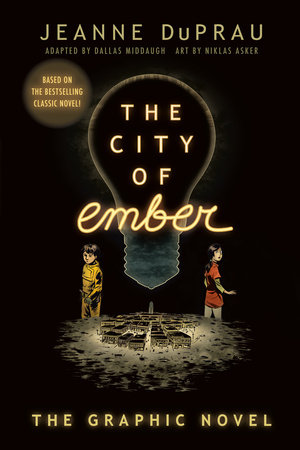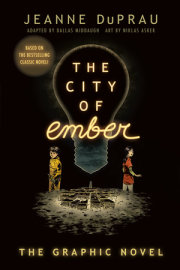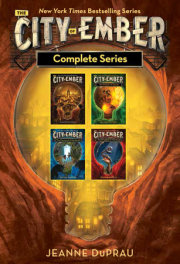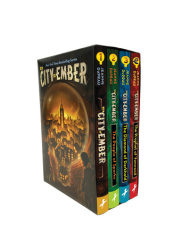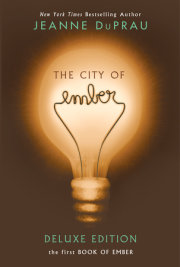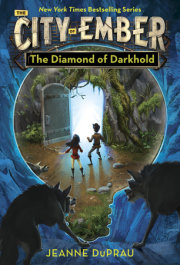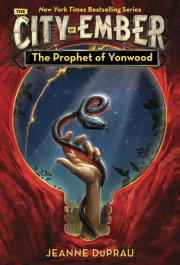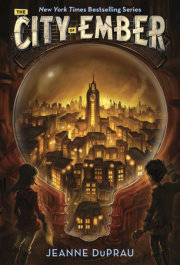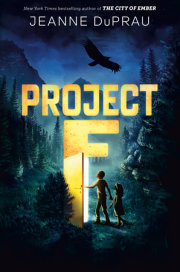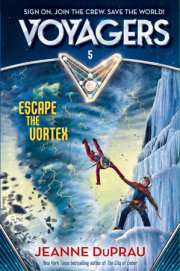The Instructions
When the city of Ember was just built and not yet inhabited, the Chief Builder and the Assistant Builder, both of them weary, sat down to speak of the future.
“They must not leave the city for at least two hundred years,” said the Chief Builder. “Or perhaps two hundred and twenty.”
“Is that long enough?” asked his Assistant.
“It should be. We can’t know for sure.”
“And when the time comes,” said the Assistant, “how will they know what to do?”
“We’ll provide them with instructions, of course,” the Chief Builder replied.
“But who will keep the instructions? Who can we trust to keep them safe and secret all that time?”
“The mayor of the city will keep the instructions,” said the Chief Builder. “We’ll put them in a box with a timed lock, set to open on the proper date.”
“And will we tell the mayor what’ s in the box?” the Assistant asked.
“No, just that it’s information they won’t need and must not see until the box opens of its own accord.”
“So the first mayor will pass the box to the next mayor, and that one to the next, and so on down through the years, all of them keeping it secret, all that time?”
“What else can we do?” asked the Chief Builder. “Nothing about this endeavor is certain. There may be no one left in the city by then or no safe place for them to come back to.”
So the first mayor of Ember was given the box, told to guard it carefully, and solemnly sworn to secrecy. When she grew old, and her time as mayor was up, she explained about the box to her successor, who also kept the secret carefully, as did the next mayor. Things went as planned for many years. But the seventh mayor of Ember was less honorable than the ones who’d come before him, and more desperate. He was ill–he had the coughing sickness that was common in the city then–and he thought the box might hold a secret that would save his life. He took it from its hiding place in the basement of the Gathering Hall and brought it home with him, where he attacked it with a hammer.
But his strength was failing by then. All he managed to do was dent the lid a little. And before he could return the box to its official hiding place or tell his successor about it, he died. The box ended up at the back of a closet, shoved behind some old bags and bundles. There it sat, unnoticed, year after year, until its time arrived, and the lock quietly clicked open.
Chapter 1
Assignment Day
In the city of Ember, the sky was always dark. The only light came from great floodlamps mounted on the buildings and at the tops of poles in the middle of the larger squares. When the lights were on, they cast a yellowish glow over the streets; people walking by threw long shadows that shortened and then stretched out again. When the lights were off, as they were between nine at night and six in the morning, the city was so dark that people might as well have been wearing blindfolds.
Sometimes darkness fell in the middle of the day. The city of Ember was old, and everything in it, including the power lines, was in need of repair. So now and then the lights would flicker and go out. These were terrible moments for the people of Ember. As they came to a halt in the middle of the street or stood stock still in their houses, afraid to move in the utter blackness, they were reminded of something they preferred not to think about: that some day the lights of the city might go out and never come back on.
But most of the time life proceeded as it always had. Grown people did their work, and younger people, until they reached the age of twelve, went to school. On the last day of their final year, which was called Assignment Day, they were given jobs to do.
The graduating students occupied Room 8 of the Ember School. On Assignment Day of the year 241, this classroom, usually noisy first thing in the morning, was completely silent. All twenty-four students sat upright and still in the desks they had grown too big for. They were waiting.
The desks were arranged in four rows of six, one behind the other. In the last row sat a slender girl named Lina Mayfleet. She was winding a strand of her long, dark hair around her finger, winding and unwinding it again and again. Sometimes she plucked at a loose thread on her ragged cape or bent over to pull on her socks, which were loose and tended to slide down around her ankles. One of her feet tapped the floor softly.
In the second row was a boy named Doon Harrow. He sat with his shoulders hunched, his eyes squeezed shut in concentration, and his hands clasped tightly together. His hair looked rumpled, as if he hadn’t combed it for a while. He had dark, thick eyebrows, which made him look serious at the best of times, and when he was anxious or angry came together to form a straight line across his forehead. His brown corduroy jacket was so old that its ridges had flattened out.
Both the girl and the boy were making urgent wishes. Doon’s wish was very specific. He repeated it over and over again, his lips moving slightly, as if he could make it come true by saying it a thousand times. Lina was making her wish in pictures rather than in words. In her mind’s eye, she saw herself running through the streets of the city in a red jacket. She made this picture as bright and real as she could.
Copyright © 2004 by Jeanne DuPrau. All rights reserved. No part of this excerpt may be reproduced or reprinted without permission in writing from the publisher.

